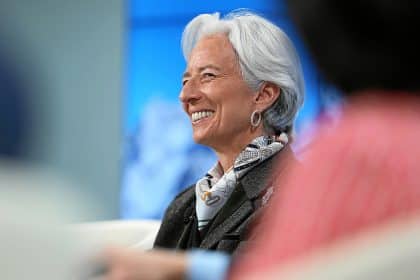Prior to this development, the ECB had kept rates at historic lows in negative territory since 2014.
The European Central Bank (ECB) decided to hike interest rates on Thursday for the first time in 11 years. The central bank resorted to this in an attempt to control inflation in the eurozone.
However, the magnitude of the ECB’s rate hike surprised analysts, market observers, and investors alike. Although the bank previously signaled its intention to increase rates in July and September, traders were expecting a hike of no more than 25 basis points. The ECB doubled those expectations by hiking rates by 50 basis points, which brings its deposit rate to zero. Accompanying its larger-than-expected rates hike announcement, the ECB issued a statement that read in part:
“The Governing Council judged that it is appropriate to take a larger first step on its policy rate normalisation path than signalled at its previous meeting.”
Prior to this development, the ECB had kept rates at historic lows in negative territory since 2014. This was sustained even amid the euro zone’s sovereign debt crisis as well as the pervading global coronavirus pandemic. Now with the rates increased, the ECB joins its global peers in ramping up borrowing costs.
ECB President Weighs In on Rates Hike
Speaking on the action, ECB president Christine Lagarde offered explanations that justify the decision. According to Lagarde, a negative outlook on inflation and unanimous backing for the anti-fragmentation tool – for debt-riddled nations – are precipitating causes. Lagarde said:
“Price pressure is spreading across more and more sectors. We expect inflation to remain undesirably high for some time. The latest data indicate a slowdown in growth, clouding the outlook for the second half of 2022 and beyond.”
Furthermore, Lagarde also touched on why the ECB surpassed its perceived hike guidance, saying:
“We decided on balance that it was appropriate to take a larger step towards exiting from negative interest rates.”
In addition to her statement, Lagarde also listed concurrent driving factors such as higher food and energy costs and wage rises. Furthermore, her statements also come as member states of the eurozone continue to feel the ill effects of the Russian war in Ukraine.
Meanwhile, the region’s common currency euro, surged to a session high on news of the substantial rate hike, to trade at $1.0257. However, it eased back to 1.0183, flat on the day. In addition, the yield on the 10-year Italian bond also climbed following the news. Furthermore, gains on this bond were compounded due to Italian Prime Minister Mario Draghi’s resignation on Thursday.
Following this rate hike, and going by previous information from the ECB, markets are now pricing in a 50-basis point rate hike in September. Furthermore, the general outlook now is that there will be a combined increase of 127 basis points between now and the end of the year.
next